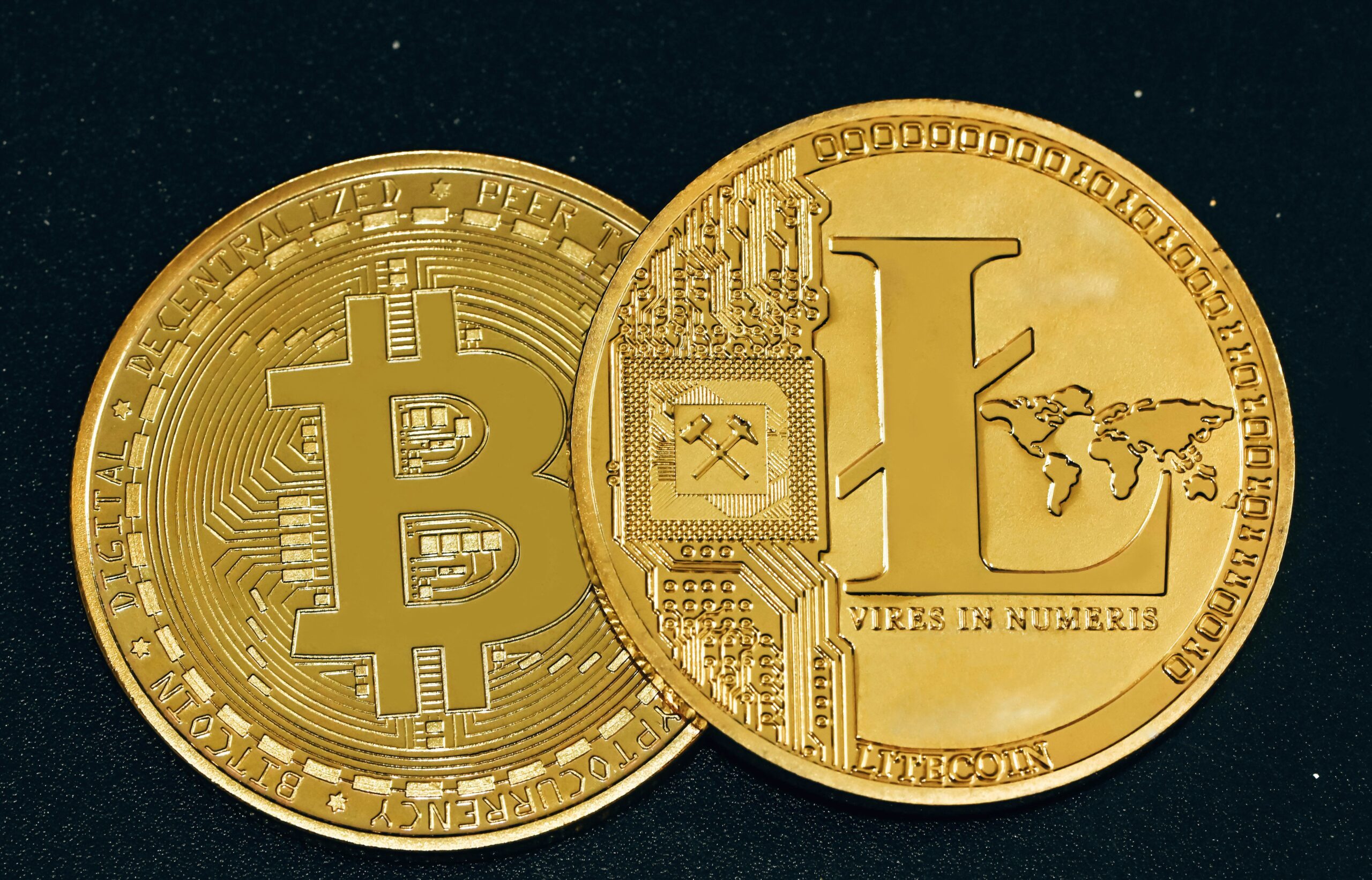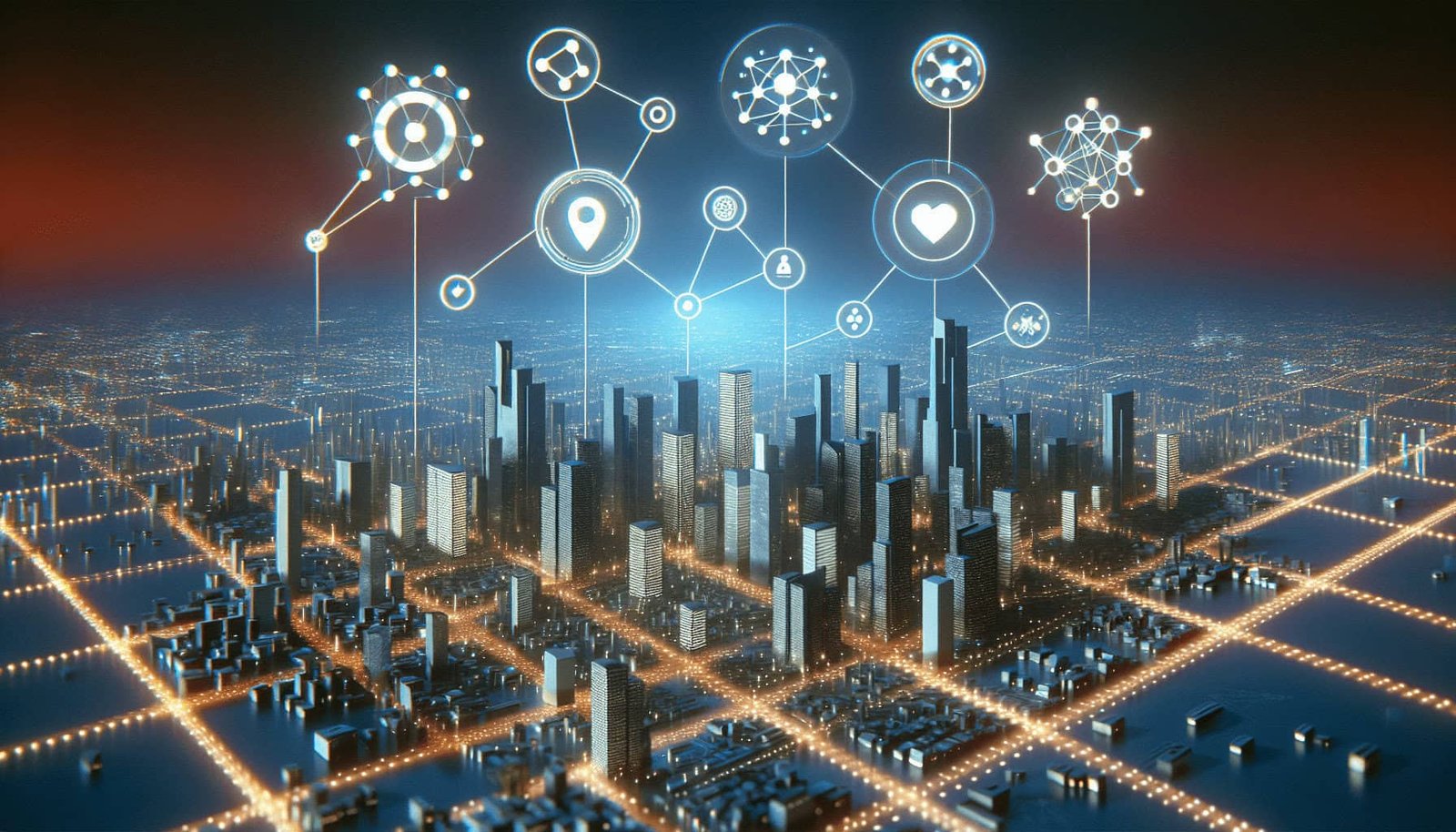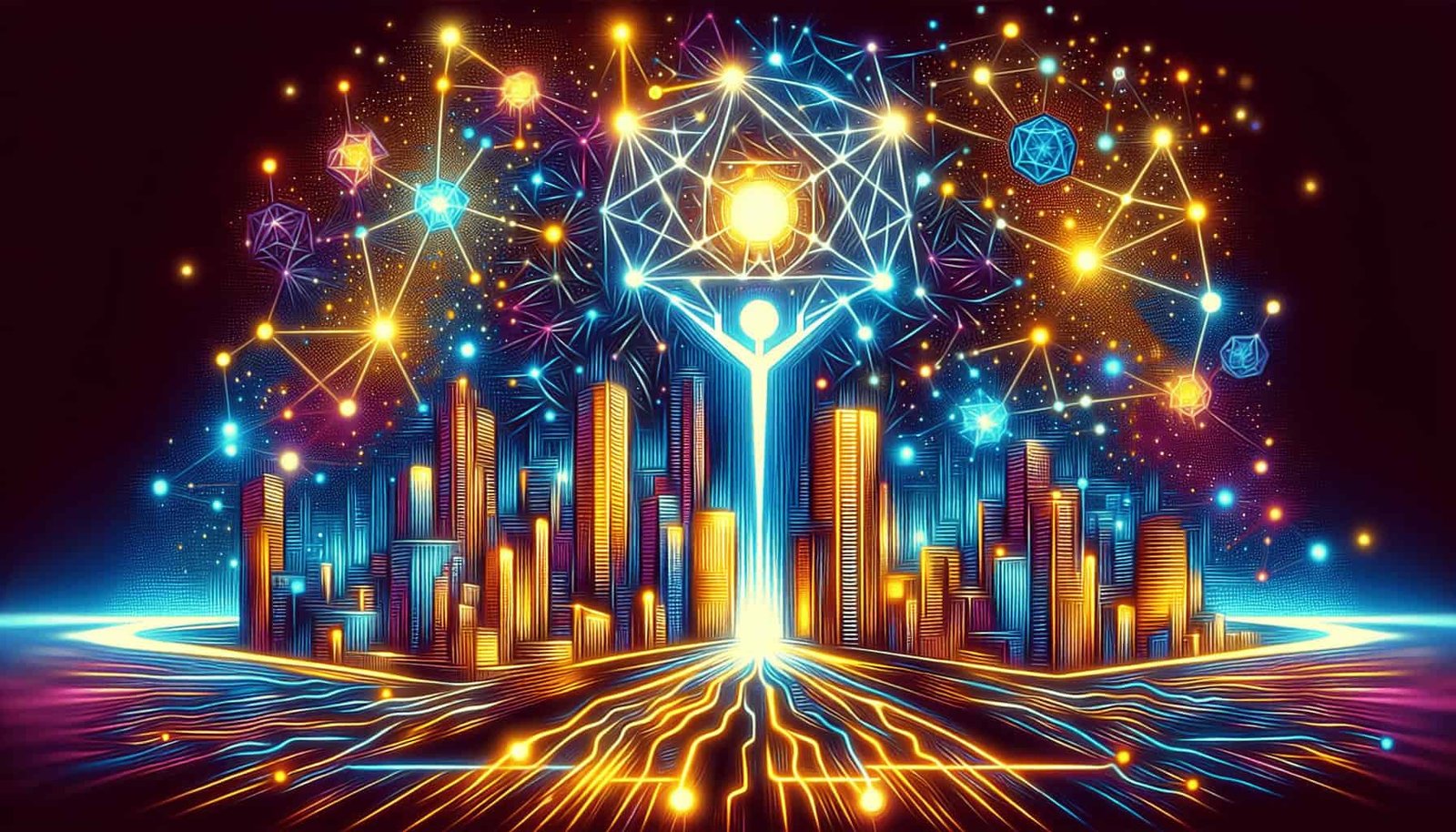In this article, you will discover the fascinating world of decentralized autonomous organizations (DAOs) and their potential impact on cities. As technology continues to advance, the concept of DAOs has gained momentum, offering a new model for decision-making and governance. We will explore how these organizations operate, the benefits they bring to urban communities, and the challenges they face in their implementation. Get ready to embark on a journey to understand how DAOs are reshaping the way cities are governed and how they can lead to more inclusive and efficient urban environments.
Definition of Decentralized Autonomous Organizations (DAOs)
Decentralized Autonomous Organizations (DAOs) are innovative and evolving models of governance that leverage blockchain technology and smart contracts to enable decentralized decision-making and management. In simple terms, a DAO is an autonomous entity that operates without central authority and is governed by a set of predefined rules and algorithms. DAOs enable individuals to participate directly in decision-making processes, eliminating the need for intermediaries or centralized institutions.
Key Features of DAOs
The key features of DAOs are transparency, decentralization, and autonomy. Transparency is achieved through the use of blockchain technology, which ensures that all transactions and actions are recorded on a public ledger that can be audited by anyone. Decentralization is a fundamental aspect of DAOs, as decision-making power is distributed among the participants, rather than concentrated in the hands of a few. Lastly, DAOs operate autonomously based on predefined rules and protocols, reducing the reliance on centralized authorities for governance.
How DAOs Function
DAOs operate on a decentralized network, usually built on blockchain technology. Blockchain enables secure and transparent transactions, ensuring the integrity of the DAO’s operations. Participants in a DAO typically hold tokens, which represent their ownership or membership in the organization. These tokens often come with voting rights, allowing participants to have a say in decision-making processes. Smart contracts, self-executing code on the blockchain, automate the implementation of decisions based on the consensus of the participants.
Advantages and Limitations of DAOs
DAOs offer numerous advantages for urban governance. Firstly, they enhance transparency and accountability by providing a tamper-proof record of all transactions, which can be accessed by the public. Secondly, DAOs promote inclusivity and community participation in decision-making, enabling individuals to directly influence city policies and projects. Furthermore, DAOs can potentially enhance the efficiency and effectiveness of public services through streamlined and automated processes.
However, DAOs also face limitations. One challenge is ensuring the scalability of DAOs, as they require a critical mass of participants for effective decision-making. Additionally, DAOs may struggle with issues of representation and the ability to balance community interests and public accountability. Furthermore, the legal and regulatory considerations surrounding DAOs are still evolving, presenting challenges for their widespread adoption.
Application of DAOs in Cities
Potential Benefits for Urban Governance
The implementation of DAOs in cities holds great potential for transforming urban governance. By enabling direct citizen participation, DAOs can foster a more inclusive and democratic decision-making process. Citizens are empowered to have a say in the development and management of their cities, leading to a sense of ownership and increased trust in public institutions. Moreover, DAOs can streamline administrative processes, reducing bureaucracy and improving the efficiency of urban governance.
Addressing Urban Challenges through DAOs
DAOs have the potential to address a wide range of urban challenges. For instance, in transportation planning, DAOs can facilitate the integration of multiple stakeholders, including residents, businesses, and government agencies, to collectively determine priorities and solutions. In urban development, DAOs can enable community-led initiatives and participatory budgeting, ensuring that development projects align with the needs and desires of the local population. Additionally, DAOs can enhance citizen engagement and collaboration in addressing environmental sustainability and social equity issues.
Case Studies of DAO Implementation in Cities
Multiple cities around the world have already begun exploring the application of DAOs in urban governance. Barcelona, Spain, launched the Decidim platform, a digital participatory democracy tool built on blockchain technology, enabling citizens to propose, discuss, and vote on municipal decisions. The City of Seoul in South Korea has implemented a blockchain-based platform called Seoul Community Crypto-Welfare Token, which allows citizens to earn tokens by participating in social impact projects and use them to access various public services. These case studies demonstrate the potential of DAOs in empowering citizens and improving urban governance.

Impact on City Infrastructure and Services
Decentralization of Infrastructure Management
The implementation of DAOs in cities has the potential to decentralize infrastructure management, enabling more efficient and responsive allocation of resources. By leveraging blockchain technology and smart contracts, DAOs can streamline processes such as maintenance, repairs, and upgrades, reducing bureaucracy and enhancing the accountability of infrastructure management. Additionally, DAOs can facilitate the pooling of resources and collaborative funding for infrastructure projects, leveraging the collective power of the community.
Improving Efficiency and Transparency in Public Services
DAOs can significantly improve the efficiency and transparency of public services in cities. By eliminating intermediaries and automating processes through smart contracts, DAOs can reduce administrative costs and delays, leading to faster and more efficient service delivery. Furthermore, the transparency of blockchain technology ensures that all transactions and actions related to public services are recorded and verifiable, enhancing accountability and reducing the potential for corruption.
Integration with Existing City Systems
The successful integration of DAOs with existing city systems is crucial for their adoption and effectiveness. DAOs should be designed to interface seamlessly with traditional governance structures and systems to ensure smooth collaboration and coordination. This integration requires careful planning and consideration of interoperability, data exchange, and legal frameworks. By integrating DAOs with existing city systems, municipalities can harness the potential of decentralized governance while maintaining stability and continuity.
Legal and Regulatory Considerations
Current Legal Frameworks for DAOs
The legal frameworks governing DAOs are still in their early stages of development. DAOs challenge traditional notions of governance and raise questions about liability, accountability, and jurisdiction. Currently, different jurisdictions have varied approaches to regulating DAOs, with some embracing innovation and others adopting a more cautious approach. For DAOs to thrive and gain wider adoption in cities, it is crucial for governments to establish clear legal frameworks that address the unique challenges posed by autonomous organizations.
Challenges in Governing Autonomous Organizations
As autonomous entities, DAOs present unique challenges in governance and regulation. Traditional models of accountability, such as liability frameworks, may not easily apply to DAOs, which operate through decentralized decision-making processes. Additionally, the ability to balance community interests and public accountability can be complex, as DAOs rely on consensus-based decision-making. Governments and policymakers must navigate these challenges to facilitate the development and adoption of DAOs while maintaining public trust and protecting the interests of all stakeholders.
Policy Recommendations for Supporting DAOs in Cities
To support the integration of DAOs in cities, policymakers should consider several policy recommendations. Firstly, they should actively engage with stakeholders, including citizens, technologists, and legal experts, to develop a regulatory framework that balances innovation with regulatory compliance. Secondly, governments can establish sandboxes or pilot programs to test and evaluate the potential of DAOs in specific areas of urban governance. Furthermore, policymakers should collaborate internationally to share best practices and enable cross-jurisdictional cooperation in regulating DAOs.

Community Engagement and Decision-making
Inclusion and Participation in DAO Governance
A key advantage of DAOs is their potential to foster inclusivity and community participation in decision-making processes. DAOs allow individuals from diverse backgrounds to have a direct influence on urban governance, bypassing traditional hierarchies and power structures. By ensuring that DAOs are accessible and user-friendly, cities can empower all residents, including marginalized communities, to actively engage in shaping the future of their cities.
Balancing Community Interests and Public Accountability
While DAOs promote community participation, it is essential to strike a balance between community interests and public accountability. The challenge lies in ensuring that decision-making processes within DAOs are transparent, accountable, and representative. This can be achieved through mechanisms such as clear governance models, well-defined voting procedures, and the incorporation of checks and balances. Moreover, effective communication channels between DAOs and traditional governance structures can ensure that decisions align with the broader public interest.
Tools and Platforms for Citizen Involvement in DAOs
To facilitate citizen involvement in DAOs, user-friendly tools and platforms are necessary. These tools should be intuitive, accessible, and transparent, enabling individuals to understand, participate in, and monitor the decision-making processes. User interfaces should be designed with a focus on inclusivity, catering to people with varying levels of technical expertise and accessibility requirements. Open-source platforms that encourage community contributions and third-party audits can also enhance trust and accountability in DAO governance.
Economic Implications and Funding
Tokenization and Incentivization in DAOs
Tokenization is a key element of DAOs, enabling individuals to participate and contribute to the organization. Tokens can represent ownership, voting rights, or access to services within the DAO ecosystem. By incentivizing participation through tokens, DAOs can attract a diverse range of individuals with different skills and perspectives. Furthermore, token economies within DAOs can create new economic models, providing opportunities for individuals to monetize their contributions and align their interests with the success of the organization.
Alternative Funding Models for Urban Projects
DAOs have the potential to disrupt traditional funding models for urban projects. Instead of relying solely on government funding or private investments, DAOs can leverage collective resources and crowdfunding mechanisms to finance urban initiatives. Through tokenization, individuals can contribute financially to projects that align with their interests and values, encouraging community-led development. This alternative funding model can enable more bottom-up approaches to urban planning and development, fostering innovation and community-driven solutions.
Economic Impact on Traditional Governance Structures
The widespread adoption of DAOs in cities can have significant economic implications for traditional governance structures. As citizens actively participate in decision-making and investment processes, traditional hierarchical structures may need to adapt to incorporate bottom-up approaches. Additionally, the increased efficiency, transparency, and cost-effectiveness of DAOs can potentially reduce the burden on traditional public budgets. However, the economic impact of DAOs on traditional governance structures may vary depending on the specific context and regulatory framework in each city.

Security and Privacy Challenges
DAO Vulnerabilities and Potential Attacks
While DAOs offer numerous advantages, they are not immune to vulnerabilities and potential attacks. Smart contracts, which govern DAO operations, can be susceptible to bugs and vulnerabilities, leading to financial losses or exploitation. The decentralized nature of DAOs also introduces the risk of 51% attacks, where a single entity gains control of the majority of votes, compromising decision-making processes. Robust security protocols, thorough code audits, and continuous monitoring are essential to ensure the integrity and resilience of DAOs.
Protecting User Data and Privacy in Decentralized Systems
In decentralized systems like DAOs, protecting user data and privacy becomes crucial. The transparent nature of blockchain technology means that once data is recorded on the blockchain, it becomes immutable and accessible to all. To preserve privacy, encryption techniques and zero-knowledge proofs can be employed to ensure that sensitive information remains confidential. Additionally, clear data protection policies and consent frameworks should be established to safeguard user privacy and comply with regulatory requirements.
Ethical Considerations in Handling Sensitive Information
The handling of sensitive information within DAOs raises ethical considerations. DAOs must prioritize informed consent, ensuring that individuals understand how their data will be used and shared within the organization. Moreover, DAOs should adopt principles of data minimization and purpose limitation, collecting only necessary data and using it solely for specified purposes. Ethical practices and guidelines can help DAOs navigate the complex landscape of data ethics, ensuring that decisions are made in the best interest of the participants and the wider community.
The Role of Technology and Blockchain
Blockchain as an Enabling Technology for DAOs
Blockchain technology plays a crucial role in enabling the functioning of DAOs. The decentralized and transparent nature of blockchain ensures the integrity and immutability of transactions and decisions within the DAO ecosystem. By leveraging blockchain for storage and verification, DAOs achieve trust and accountability without the need for intermediaries. Blockchain technology also enables secure and auditable voting processes, ensuring fairness in decision-making by preventing fraud or manipulation.
Other Technological Components for DAO Infrastructure
While blockchain is a foundational technology for DAOs, other technological components contribute to the infrastructure’s functionality and scalability. Smart contracts, as self-executing code, automate the implementation of decisions and actions within the DAO. Cryptocurrencies or tokens facilitate participation and incentivization within the DAO ecosystem. Layer-2 solutions like sidechains or scaling protocols address the scalability challenges of blockchain, enabling DAOs to handle a large number of participants and transactions.
Exploring Scalability and Interoperability Challenges
Scalability and interoperability are critical challenges in the implementation of DAOs. As the number of participants and transactions increase, blockchains face limitations in processing capacity and speed. Layer-2 solutions, such as state channels or sharding, are being explored to address these scalability challenges. Furthermore, achieving interoperability between different blockchains and legacy systems is crucial for DAOs to integrate with existing city infrastructures and engage with a broader ecosystem. Ongoing research and technological advancements are necessary to overcome these challenges for the widespread adoption of DAOs.

Collaboration and Coordination among DAOs
Interactions between City-wide and Neighborhood-specific DAOs
DAOs can operate at both city-wide and neighborhood-specific levels, enabling collaboration and coordination among different scales of governance. City-wide DAOs can focus on overarching policies, strategic planning, and resource allocation for the entire city. Neighborhood-specific DAOs, on the other hand, can address hyperlocal issues and empower communities to lead their own initiatives. The interactions between these DAOs can facilitate bottom-up participation while maintaining a coherent and inclusive approach to urban governance.
Standardization Efforts for DAO Interoperability
Standardization efforts are crucial for ensuring the interoperability of DAOs across different cities and jurisdictions. Interoperability standards can facilitate collaboration, information exchange, and resource pooling between DAOs. Standardized protocols for data formats, messaging, and voting procedures can enhance transparency, accountability, and the ease of interaction between DAOs. Moreover, interoperability standards allow for smoother integration with existing urban systems and increase the potential for cross-border collaboration.
Benefits and Challenges of DAO Networking
Networking and collaboration among DAOs offer several benefits and challenges. On the positive side, DAO networking allows for knowledge sharing, resource pooling, and collective decision-making on a larger scale. DAOs can leverage the expertise and experiences of other organizations to inform their own decision-making processes. However, challenges arise when aligning diverse interests, ensuring effective governance, and managing the complexity of interactions among numerous DAOs. Governance models, communication platforms, and clear protocols are vital to navigate these challenges and harness the benefits of DAO networking.
Future Outlook and Adoption Challenges
Potential for Widespread Adoption of DAOs in Urban Governance
The potential for widespread adoption of DAOs in urban governance is significant. As more cities and communities recognize the benefits of decentralized decision-making, the demand for innovative governance models like DAOs is likely to increase. The ability of DAOs to foster inclusivity, transparency, and efficiency in urban governance will be of particular interest to forward-thinking cities seeking to engage citizens and tap into the collective intelligence of their communities.
Anticipated Obstacles to DAO Implementation in Cities
Despite the potential benefits, there are several obstacles to overcome for the successful implementation of DAOs in cities. Regulatory and legal challenges, as well as concerns around data protection and privacy, require careful consideration and collaboration between governments, policymakers, and technologists. Additionally, technical challenges related to scalability, interoperability, and user experience must be addressed to ensure the seamless integration of DAOs into existing city systems. Education and awareness about DAOs will also be necessary to build trust and understanding among citizens and stakeholders.
Areas for Further Research and Innovation
The exploration of DAOs for urban governance is an evolving field, with many opportunities for further research and innovation. Areas for exploration include designing effective governance models for DAOs, developing robust security protocols and legal frameworks, and investigating the economic, social, and environmental impacts of DAO implementation in cities. Additionally, ongoing research is needed to advance the scalability, interoperability, and user experience of DAOs, addressing the challenges that currently limit their widespread adoption. Continued collaboration among academia, industry, and governments will be crucial in driving research and innovation in this promising field.

